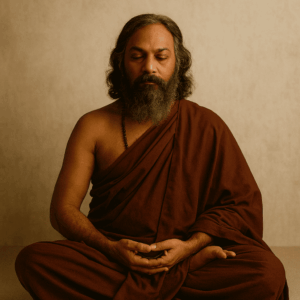🌿 DBT Mindfulness Skills: WHAT & HOW
 Why Mindfulness Matters in DBT
Why Mindfulness Matters in DBT
Mindfulness is the foundation of Dialectical Behaviour Therapy (DBT). Without awareness, other skills like emotion regulation or distress tolerance can feel like shooting arrows in the dark. Mindfulness teaches us to pause, notice, and respond rather than react.
In DBT, mindfulness is broken down into two sets of skills: WHAT skills (what to do) and HOW skills (how to do it). Mnemonics make them easy to remember, even in moments of stress.
🧘 WHAT Skills – O.N.D.
Observe – Notice – Describe
-
Observe: Pay attention to your experience—thoughts, feelings, sensations—like watching clouds pass in the sky.
-
Notice: Catch small details, like the way your breath rises and falls or the tone in someone’s voice.
-
Describe: Put words to what you see and feel, without judgment (“I feel tightness in my chest,” rather than “I am weak”).
👉 These skills help you anchor yourself in the present.
🌸 HOW Skills – ONE-MI
One-mindfully – Non-judgmentally – Effectively
-
One-mindfully: Focus on one thing at a time. If you’re drinking tea, just drink tea—don’t scroll your phone and replay an argument in your head.
-
Non-judgmentally: Notice experiences without labeling them as “good” or “bad.” Painful feelings become easier to manage when they’re not fought against.
-
Effectively: Do what works, not what pride or anger tells you. Sometimes being effective means letting go of “winning” and focusing on what helps.
Case Example: Mr. R and the Racing Mind
Mr. R, a 35-year-old businessman, often complained that his mind “never stopped.” At work, he would juggle calls, emails, and planning in his head—leaving him exhausted and irritable.
When he practiced Observe–Notice–Describe, he started by just observing his morning tea: the warmth, the aroma, the taste. Then he applied One-mindfully at work by finishing one email before switching to the next. Slowly, his sense of being “overwhelmed” reduced.
Mindfulness didn’t erase his stress—but it gave him control over how he handled it.
🗝️ Key Takeaway
Mindfulness skills sound simple but are deep practices. They shift life from autopilot to conscious living. By mastering WHAT and HOW, you create space between trigger and response, and that space is where change happens.
✨ About the Author
I’m Dr. Srinivas Rajkumar T., MD (AIIMS, New Delhi), DNB, MBA (BITS, Pilani), Consultant Psychiatrist.
📍 Apollo Clinic, Velachery, Chennai
📍 Kumar’s Healthcare, Chromepet
My areas of interest include:
-
DBT and CBT for emotional regulation
-
Addiction and de-addiction care
-
Child and Adolescent Psychiatry (ADHD, Autism, Behavioural Issues)
-
Geriatric Psychiatry (Dementia, Depression, Memory Clinics)
📞 8595155808 for appointments
Through this series, my goal is to bring therapy skills into simple, everyday language that anyone can use.